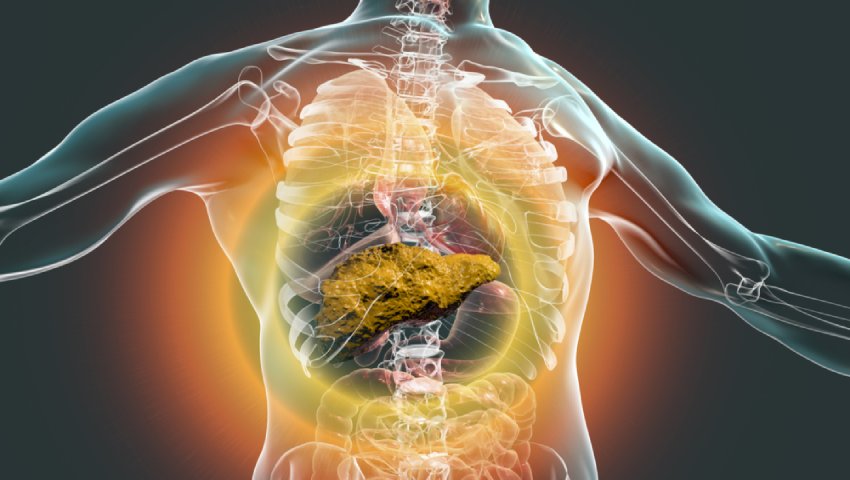
- 22/08/2025
- Kaizen Gastro Care
- 0 Comments
- Liver Disorder
Liver Cirrhosis: Is It Reversible? What You Need to Know
For many, the term liver cirrhosis brings a mix of fear and uncertainty. Is it the same as liver cancer? Can it be cured? Does it mean the liver will fail completely? These are common questions—and the good news is, with the right knowledge and timely care, you can take control of your liver health and slow the disease’s progression.
What Exactly Is Liver Cirrhosis?
The liver plays a very important and dynamic role in keeping your body functioning smoothly every day. It filters toxins, processes nutrients, helps with digestion, stores energy, and supports your immune system. When the liver experiences repeated injury over time—whether from infections, alcohol, fat buildup, or other causes—healthy liver cells are gradually replaced with scar tissue (fibrosis). When scarring becomes widespread, this is called liver cirrhosis.
Important to know:
The scar tissue itself is generally permanent. However, early detection of liver cirrhosis and treatment of its underlying cause can help restore some liver function and prevent additional harm.
Is Liver Cirrhosis Reversible?
- Early stage (Compensated Cirrhosis): The liver is damaged but still able to function. Treating the underlying cause at this stage can greatly improve quality of life and slow progression.
- Advanced stage (Decompensated Cirrhosis): The damage is extensive and permanent. The focus shifts to managing symptoms, preventing complications, and preserving what liver function remains.
While complete reversal of cirrhosis is rare, partial improvement in liver function is possible if action is taken early.
Common Causes of Liver Cirrhosis:
Cirrhosis can develop from several different liver problems, including:
- Chronic hepatitis B or C – viral infections that cause long-term inflammation.
- Alcohol-related liver disease – from heavy, prolonged drinking.
- Non-Alcoholic Fatty Liver Disease (NAFLD) – often linked to obesity, diabetes, and poor diet.
- Autoimmune liver disorders occur when the body’s immune system wrongly attacks its own liver tissue, causing harm and inflammation.
- Inherited disorders like Wilson’s disease and hemochromatosis can affect liver health.
Warning Signs and Symptoms of Liver Cirrhosis:
Cirrhosis often develops silently—you may have no symptoms until significant damage has occurred. When symptoms do appear, they may include:
- Persistent fatigue or weakness
- Loss of appetite or unexplained weight loss
- Nausea
- Swelling in legs, ankles, or abdomen (edema/ascites)
- Yellowing of skin and eyes (jaundice)
- Itchy skin
- Redness of the palms
- Easy bruising or bleeding
- Confusion, drowsiness, or slurred speech
- In women: missed menstrual periods
- In men: reduced sex drive or breast enlargement (gynecomastia)
Diagnosing Liver Cirrhosis Before Symptoms Appear:
Early cirrhosis is often found by accident during routine health checks or blood tests. If your doctor suspects liver damage, they may recommend:
- Blood tests to check liver enzymes and function.
- Imaging scans (ultrasound, CT, MRI) to see the liver’s texture.
- Fibro Scan to measure stiffness (a sign of scarring).
- Liver biopsy in some cases, to confirm the diagnosis.
Two Stages of Liver Cirrhosis:
- Compensated Cirrhosis: Liver is scarred but still working. Often no symptoms yet.
- Decompensated Cirrhosis: Liver function has dropped, and complications (like bleeding, infections, or fluid buildup) become more likely.
Liver Cirrhosis Treatment and Management Options:
Address the Root Cause:
- Hepatitis B/C – Antiviral medicines can control or eliminate the virus.
- Alcohol-related cirrhosis – Complete alcohol avoidance is essential; even small amounts can worsen damage.
- Fatty liver disease – Gradual weight loss, healthy diet, and regular exercise.
Manage Symptoms & Prevent Complications:
- Medicines to reduce fluid buildup and control confusion.
- Screening every 6 months for liver cancer (hepatocellular carcinoma).
Protect the Liver:
- Avoid alcohol and unnecessary medications harmful to the liver.
- Get vaccinated against hepatitis A and B.
- Avoid raw seafood and maintain good food hygiene.
Advanced Treatments
- In severe cases where the liver fails, liver transplantation may be the only option.
Lifestyle & Long-Term Monitoring for Liver Cirrhosis:
Even with treatment, ongoing monitoring is essential. Helpful habits include:
- Eating a balanced diet rich in fruits, vegetables, and lean protein.
- Staying physically active.
- Maintaining a healthy weight.
- Managing diabetes and cholesterol.
- Attending all scheduled check-ups.
Risk Factors for Developing Liver Cirrhosis:
You are at higher risk if you:
- Drink alcohol heavily or regularly.
- Are overweight or obese.
- Have chronic hepatitis infections.
- Have certain genetic or autoimmune liver diseases.
The Bottom Line:
Liver cirrhosis means permanent scarring, but it’s not the end of the road. If diagnosed early, proper treatment and lifestyle changes can help you live a healthy life and prevent serious complications. Your liver continuously supports your body’s well-being—it’s important to take good care of it. If you have risk factors, don’t wait for symptoms. Regular check-ups could make the difference between manageable liver health and life-threatening disease.
Expert Liver Cirrhosis Treatment in Pune at Kaizen Gastro Care:
At Kaizen Gastro Care, we specialize in Liver Cirrhosis treatment in Pune, offering personalized care with the latest diagnostic tools and advanced therapies. Our experienced gastroenterologists guide you every step of the way toward maintaining your liver health. Call us today at 9763635252 to schedule a consultation and take control of your liver health with expert support.
